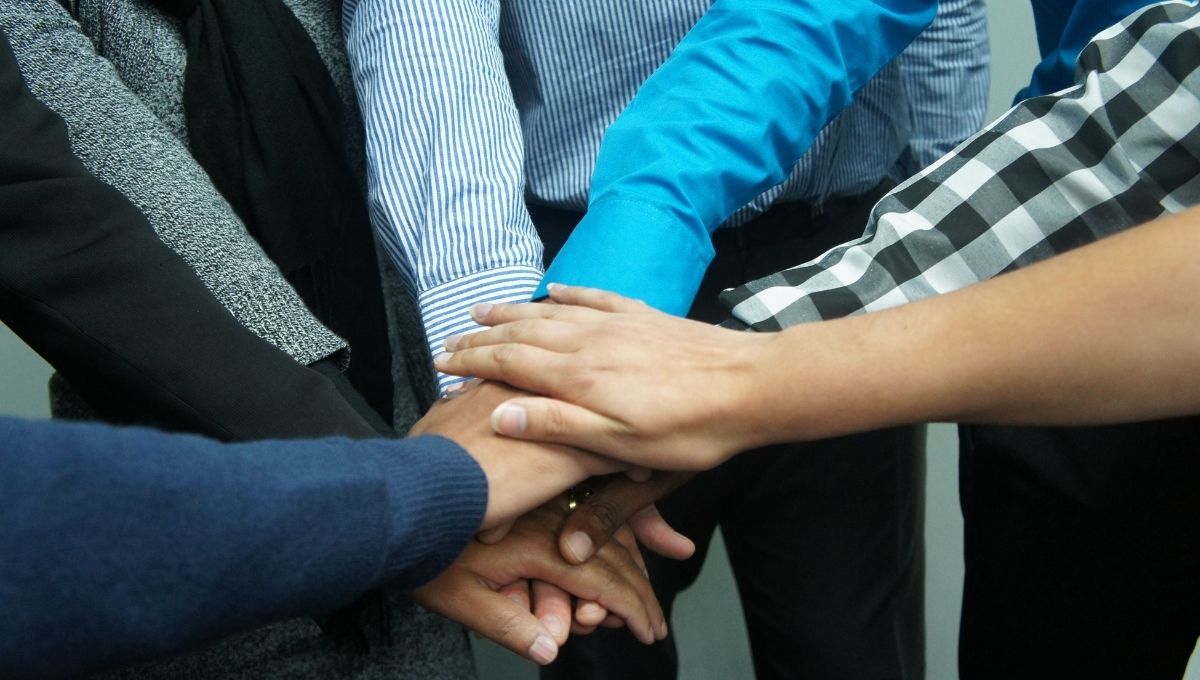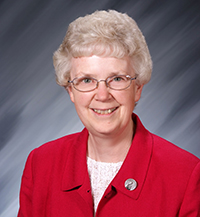
Sister Anne Victory talks about the need for many organizations to work together to end forced labor and assist victims of human trafficking. Hear the full In Good Faith episode IGF041 at aNunsLife.org.
This podcast is brought to you by one of our sponsors, the Sisters of St. Francis of the Holy Cross, in Green Bay, Wisconsin!
Let us know what you thought of the podcast by taking this short 3-minute survey! Your input helps us shape the future of our Random Nun Clips program! Click HERE to take the survey. Thank you!
 Sister Anne Victory has led efforts against human trafficking for over a decade. She helped to establish the Collaborative to End Human Trafficking in 2007. One result of the Collaborative’s work is that over 60 agencies in NE Ohio–law enforcement, health care, social services, and others—are now connected to weave a safety net for the men, women, and children who are victims of human trafficking. Sister Anne is Director of Education at the Collaborative, and her background includes extensive experience as a nurse clinician, educator, and administrator.
Sister Anne Victory has led efforts against human trafficking for over a decade. She helped to establish the Collaborative to End Human Trafficking in 2007. One result of the Collaborative’s work is that over 60 agencies in NE Ohio–law enforcement, health care, social services, and others—are now connected to weave a safety net for the men, women, and children who are victims of human trafficking. Sister Anne is Director of Education at the Collaborative, and her background includes extensive experience as a nurse clinician, educator, and administrator.
Sister Maxine
This podcast is brought to you by one of our sponsors, the Sisters of St. Francis of the Holy Cross Green Bay, Wisconsin. I'm Sister Maxine, and my guest is Sister Anne Victory with the Collaborative to End Human Trafficking. You name a number of different groups that you work with: hotels, law enforcement, social service agencies, teachers, businesses. Why are there so many groups and such different groups?
Sister Anne Victory
Well, this is a very complex issue to address, and nobody has all the answers. Everybody has a piece of it, that if they do their jobs appropriately, we can address it together. So we need to be working with all kinds of groups to make a difference on the issue. The social service agencies, the rape crisis center, the courts, law enforcement all have a piece to play. And so we must do it together. Otherwise, we're going to not have effective measures in place, or we'll be spinning our wheels, trying to address only a piece of it without involving all the players that need to be around the table for the sake of the victims, and for addressing the criminal aspect of this: helping to stop the demand, and curtail the perpetrators.
Sister Maxine
So it's about the systems that people who have been trafficked or who are being trafficked--about the systems they will encounter, and how those systems are prepared to respond effectively.
Sister Anne Victory
Yes. So it's really about systemic change. And we're trying to facilitate that kind of change. And it takes a long time. It takes a lot of persistence, and staying at the table and being open to what others can bring to the table that can really make a difference.
Sister Maxine
As you have conversations with different groups, what are some of the questions that you hear from them?
Sister Anne Victory
One of the questions we always get is "Why aren't you doing more in schools?" Or "Are you doing anything in schools?" Now, we do get into schools here and there because of a principal that we know or a teacher that we know. And yet getting to a school system is very, very challenging. So that's one of my personal goals, to make that a reality before I retire: that we are into at least one school system so that everybody in that system knows... the administrators, the faculty, the staff, the cafeteria workers, the bus drivers, and the students and parents know about the issue, know how to respond to it. So that that takes a lot of work. It is a mandate in our state that teachers know about the issue, but it's an unfunded mandate. And because teachers are so bogged down with all these other things they need to know about, it becomes one of the things that hits the back burner instead. So it's one of those issues that we really just need to keep at and make it happen as best we can. So that's one of the things.
Sister Maxine
Is your interest in schools because that age group is an especially vulnerable population?
Sister Anne Victory
It's definitely a vulnerable population. And when you think about it, they're the next generation that will be inheriting this issue as something they need to continue to address. So if they are knowledgeable, they can keep themselves safe, keep their friends safe, and begin to educate themselves into whatever their business might be upon graduation from college. One of our other efforts is with colleges and universities to integrate this topic into the curricula of all the helping professions. So we've had a little success with that. But there's still a long way to go to get more of the colleges and universities really engaged with this issue, making it something that their graduates will know when they graduate, rather than having to pick it up in continuing education.
This transcript has been lightly edited for readability.




